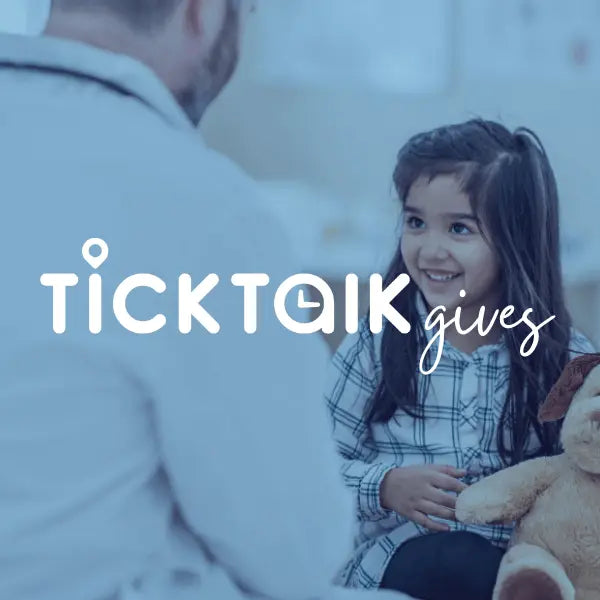In honor of Mental Health Awareness Month, we’re donating a portion of every TickTalk 4 order in May to the Child Mind Institute to de-stigmatize mental health and provide accessible care to families in need. We sat down with our Co-Founder and CEO, Ying Gong, to discuss the importance of mental health awareness.
Why do you think it’s important to raise awareness and reduce the stigma of mental health?
Raising awareness and reducing the stigma surrounding mental health is crucial because mental health issues are pervasive, affecting millions of individuals and families worldwide. By creating an open and inclusive environment, we can encourage more people to seek help when they need it, without fear of judgment or discrimination. Addressing mental health is vital for the overall well-being of individuals, families, and communities. It also contributes to better productivity, improved relationships, and a healthier society as a whole.
How do you discuss the topic of mental health with your daughter?
When discussing mental health with my daughter, I aim to create a safe, open, and non-judgmental environment for conversation. I emphasize the importance of emotional well-being, just as we would discuss physical health. I encourage her to share her feelings and experiences, and I listen actively and empathetically. I also provide age-appropriate information and resources to help her understand various aspects of mental health. By maintaining ongoing dialogue, I hope to build trust and ensure that she feels comfortable discussing any concerns or challenges she may face.
As a parent in the digital age, what risks do you think face children when it comes to mental health?
Children in the digital age face several risks to their mental health. Some risks include:
- Cyberbullying: Online bullying and harassment can have a significant impact on a child's mental health, leading to anxiety, depression, and even suicidal thoughts.
- Social media pressure: The constant exposure to idealized images and lifestyles on social media platforms can lead to feelings of inadequacy, low self-esteem, and depression.
- Information overload: The sheer amount of information and stimuli available online can be overwhelming for children, causing anxiety, stress, and difficulty focusing.
- Excessive screen time: Spending too much time on digital devices can negatively impact children's sleep, physical health, and social development, all of these can contribute to mental health challenges.
- Privacy concerns: The potential for misuse of personal information and the risk of identity theft can cause anxiety and stress for both children and parents.
As a parent, it is essential to monitor and guide our children's digital usage, educate them about potential risks, and provide support for maintaining a balanced, healthy relationship with technology.
We’re excited to be donating a portion of proceeds in May to help further the conversation surrounding mental health care and create an accessible, affordable future for families in need of support. To help make an impact, shop TickTalk 4 for a portion to go to the Child Mind Institute. If you have a non-profit you’d like us to support for our next TickTalk Gives Back campaign, DM us @myticktalk!


Share:
You helped us plant 3,078 trees in April!
5 Reasons Why a Kid's Smartwatch is a Must-Have for Summer Vacation